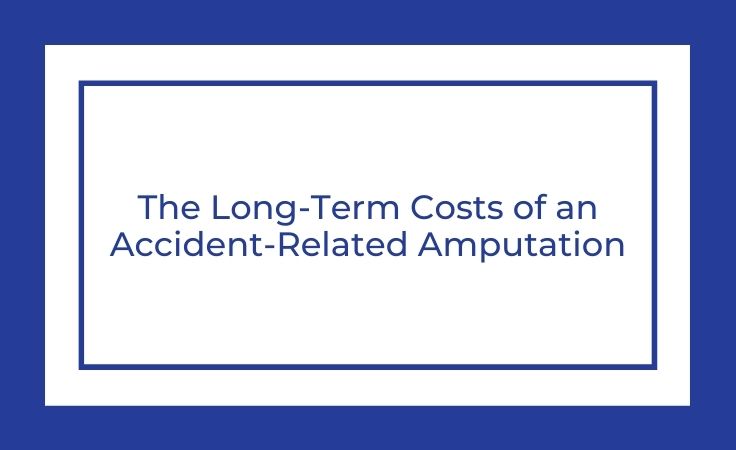Amputations are serious catastrophic injuries. There are several reasons why you may need an amputation; in some cases, medical conditions require surgeons to remove a compromised limb. In others, a dangerous accident is responsible for the loss of a limb. These injuries can have serious long-term complications—taking a financial, emotional, and physical toll on you and your family.
Costs and Recovery for Amputation
Amputation often requires lifelong care. According to a 2007 report from the Johns Hopkins Center for Injury Research and Policy, the estimated lifetime cost for amputation was $509,272. These costs have likely risen due to inflation and increasingly expensive medical care. Amputations require specialized treatment and equipment, including the following.
- Immediate medical bills, such as surgery costs, hospital stays, and medication
- Future medical expenses for ongoing rehabilitation and prescriptions
- The cost of physical and psychiatric therapy
- Prosthetics and other mobility equipment, such as wheelchairs
- Accommodations to your home and vehicle
In addition to medical costs, an amputation can prevent you from returning to work for a period of time, leading to lost wages. In some cases, you may be unable to return to work at all, losing future income and benefits such as health insurance.
The Emotional and Physical Toll of Amputation
Amputation not only has an impact on your finances—your mental and physical health can also suffer due to the loss of a limb. The emotional trauma associated with the loss of a limb can lead to significant distress and anguish. In some cases, you may develop mental health conditions such as post-traumatic stress disorder, anxiety, and depression.
Your family may also suffer from the loss of care, companionship, services, consortium, or comfort. After an amputation, you may also experience physical discomfort and struggle to adjust to your new lifestyle. Amputation affects several aspects of your daily life, often leading to a diminished quality of life.
Legal Options for Amputation Victims
If you needed an amputation after an accident, you may have grounds for a personal injury lawsuit. Through this claim, you can recover compensation for your medical expenses, pain and suffering, lost wages, property damage, and other costs associated with the amputation. However, you will need to prove that someone else’s negligence is responsible for the amputation.
For example, if you are in a car accident with a drunk driver and lose a limb, you would have not sustained the injury if not for his or her actions. As a result, you could file a lawsuit or insurance claim against the at-fault driver. Accidents involving workplace negligence, dangerous property conditions, and medical malpractice may also qualify for a personal injury claim.
In these situations, you need a California amputation attorney on your side. Hiring a lawyer can provide significant benefits to your case, including the following.
- The ability to calculate the full extent of your amputation-related damages
- Access to expert witnesses who can validate your claim and help you determine your long-term care needs
- Knowledge of personal injury law and the processes required to file a claim
- The ability to handle all aspects of your case so you can focus on recovery
- The ability to craft a compelling case for your right to compensation
- The ability to negotiate with insurance companies and argue for a higher settlement on your behalf
As soon as possible after your accident, contact a personal injury lawyer to discuss your case. At your consultation, your lawyer will evaluate the available evidence and explain your optimal path to recovery.





